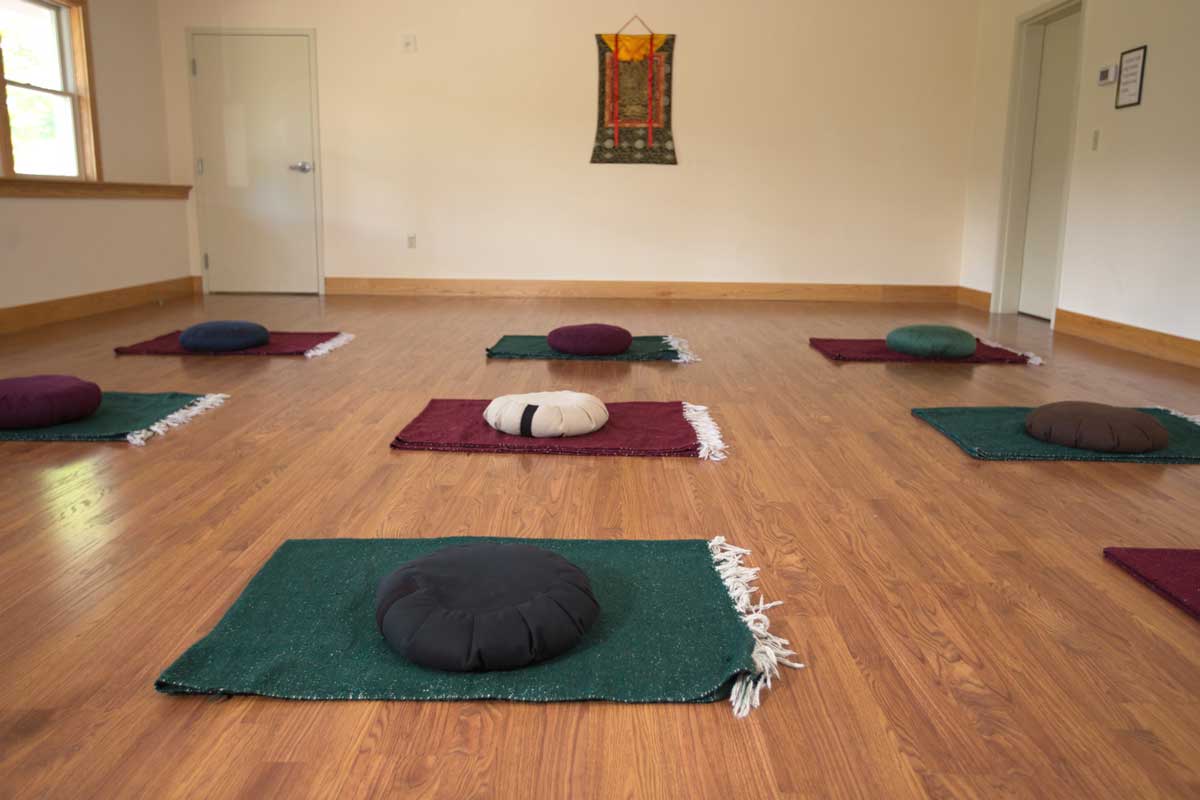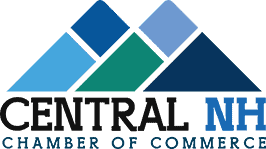Finding Pause
Yoga & Meditation
The benefits of yoga and meditation are particularly powerful for alcoholics and drug addicts seeking recovery.
Yoga and meditation are two tools individuals can use to slow down, breathe, find their sense of self and calm their anxieties. These methods have proven to be extremely beneficial to impulse control. As addicts and alcoholics, we are very prone to being highly sensitive and highly reactionary. Yoga and meditation can help us find more pause before we act. In addition, finding a place of quiet within oneself is essential to being able to sense one’s own spirit, one’s own inner voice, and a connection to a higher power of one’s own conception. This idea — of finding a higher power and developing a conscious contact with that higher power — is central to the program of recovery as outlined in the 12 steps of Alcoholics Anonymous.
At The Plymouth House we offer yoga classes several times a week, which are all facilitated by a professional instructor inside our serene yoga studio. Classes focus on the development of mind-body connection, and small class sizes allow for instructors to help each guest individually. We also offer meditation workshops, teaching guests how to quiet their minds as they bolster their spiritual connection and develop their own personal sense of a “higher power.”
This spiritual component of recovery can feel like a roadblock for some, but we have found that as individuals begin to explore — often through yoga and meditation — what the term “higher power” means for them individually, the roadblock diminishes. All that is necessary is a tiny bit of willingness to explore.
Our Meditation Room
At The Plymouth House we have a well-appointed and peaceful room that is exclusively designated for our yoga classes. Up to once a day, clients have the opportunity to participate in a professionally led yoga class that focuses on quieting the mind, strengthening the body and finding healing. The room is quiet and peaceful, and clients have plenty of space to stretch out. Both yoga and guided meditation classes can be found on our daily schedules.

We Are Here For You
Let Us Help You Heal
Our Drug & Alcohol recovery services are second to none.
Learn how we can help by speaking with one of our Treatment Advisors today.
Benefits of Yoga
Yoga helps facilitate mindfulness; described in an article titled “Mindfulness for Addiction Recovery: A Cognitive Disciplinary Preventive Approach to Avoid Relapse into Substance Abuse” as, “a state of non-judgemental awareness.” Mindfulness helps clients stay focused on the present moment and has proven to be a wonderful relapse prevention tool. The study concludes that every successful treatment program incorporates three holistic methodologies: silent meditation, self-reflection (through therapy and the 12 steps) and a yoga practice. It is important to note that yoga is an adjunct practice, meaning that it is a wonderful addition to every recovery program but it should never be utilized as a replacement for clinical care. Yoga is most beneficial when it is used in conjunction with a wide variety of recovery methods, including therapy and 12-step program immersion.
Benefits of yoga include:
- An alleviation of post-acute withdrawal symptoms – Symptoms of post-acute withdrawal syndrome – or PAWS – can last for months after a person gets clean and sober. These symptoms might include slight psychological issues (symptoms of anxiety or depression), general feelings of physical discomfort and pain, sleep-related issues and chronic fatigue. Yoga helps alleviate these symptoms in a completely non-invasive way.
- Yoga helps people effectively deal with uncomfortable emotions – In fact, yoga can be a beneficial relapse prevention tool. In early recovery, a variety of emotions are bound to crop up – feelings of loneliness, guilt, remorse, stress and frustration, for example. A daily or weekly yoga practice can help people work through these emotions in a healthy and productive way.
- Yoga has been proven to build self-esteem and help people develop a sense of self-worth – Over time, as a person becomes more flexible and resilient, he or she will be able to hit poses that weren’t previously possible. Making obvious improvements helps people build self-esteem. Additionally, people will develop a greater sense of self-control – which is crucial to release prevention.
- Having a solid yoga practice leads to the development of a healthy routine – Having a set schedule or daily routine in place is extremely important to maintaining sobriety. Many people entirely lacked structure when they were active in their addiction – and as they say, “Idle hands are the Devil’s plaything.” Staying busy is important. Additionally, heading to the same yoga class every week (or several times a week) is a great way to maintain accountability outside of AA.
Our Drug & Alcohol Treatment Services Include
The Benefits of Meditation
There are also countless benefits to practicing meditation while in addiction recovery. These benefits are evidence-based, and include:
- Learning to stay focused on the present moment – Meditation helps people learn how to live in the here and the now, which is an important tool. Living in the past breeds depression, and living in the future breeds anxiety.
- Meditation has proven to improve sleep – Sleep is something that many people in early recovery struggle with. Studies have shown that people who meditate on a daily basis tend to fall asleep faster and stay asleep for longer.
- Meditating for even just 10 minutes every day has been shown to reduce stress levels – When people meditate regularly, they are more inclined to slow down and take an objective look at what they are currently experiencing.
- Anxiety reduction – Numerous studies have been conducted on the impact mindfulness meditation has on men and women who are struggling with anxiety. Because of this, mindfulness meditation is an important component of our dual diagnosis treatment program.
- Enhanced self-awareness – Some forms of meditation revolve around self-inquiry, which leads to a greater understanding of self while simultaneously helping to foster a more tangible connection with withers. One specific study showed that people who meditated for two weeks experienced greater feelings of social connection and reduced feelings of isolation and loneliness.
- Improved emotional health – In order to be effective long-term, addiction recovery must focus on restoring physical, mental, emotional and spiritual health. Mindfulness meditation contributes to healing all aspects. Men and women who meditate regularly have an easier time regulating their emotions.
Ready To Begin Your Drug & Alcohol Treatment?
We Offer A Safe & Effective Program
Don’t let Drug & Alcohol addiction control your life.
Call us today and let’s get you started on the path to a better you.
Alcoholics Anonymous & Spirituality
The 11th Step of Alcoholic Anonymous reads: “Sought through prayer and meditation to improve our conscious contact with God as we understand him.”
Setting aside time to meditate on a daily basis helps when it comes to developing a conscious contact with a higher power of our own understanding. Staying sober, grounding ourselves and successfully dealing with emotions and life decisions takes a consistent effort to remain peaceful. Because The Plymouth House focuses on a 12 step approach to addiction recovery, meditation is a key component of our recovery program. The yoga classes we offer all end with an extended period of meditation.
Begin Healing Now!
Have A Call With One Of Our Treatment Advisors
Don’t Suffer Any Longer
The Plymouth House Process
Yoga and meditation are fundamental parts of the Plymouth House recovery process. We encourage our clients to utilize these tools long after treatment comes to an end. They are evidence-based, effective and require little more than a quiet space and some free time. A focus on developing a sense of spirituality is only one of the many things that sets The Plymouth House apart. When you or your loved one arrives at The Plymouth House, you’ll quickly see that we are not a typical treatment facility. Nestled in the foothills of The White Mountains of New Hampshire, The Plymouth House provides our guests with a safe, serene and comfortable environment to overcome their addiction and recover on a physical, mental, emotional and spiritual basis.
Our experienced team of Treatment Advisors personally works with you from your initial contact until the day you or your loved one arrives at The Plymouth House. We know that in most cases, our client and their loved ones have a myriad of questions regarding treatment options, coverage options, facility details and the admissions process. With one phone call we will assist families and individuals in making the right choices for their situation. We look forward to speaking with you soon and answering any additional questions you may have. You can reach us 24 hours a day here.















